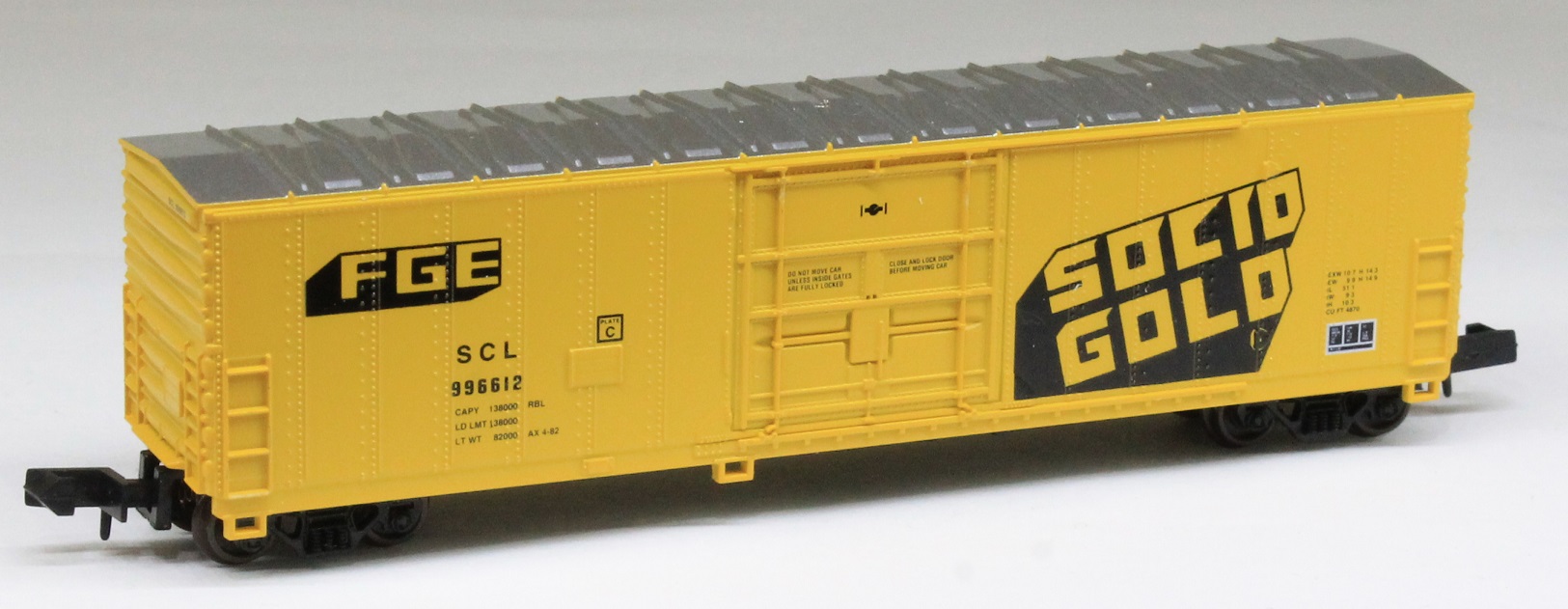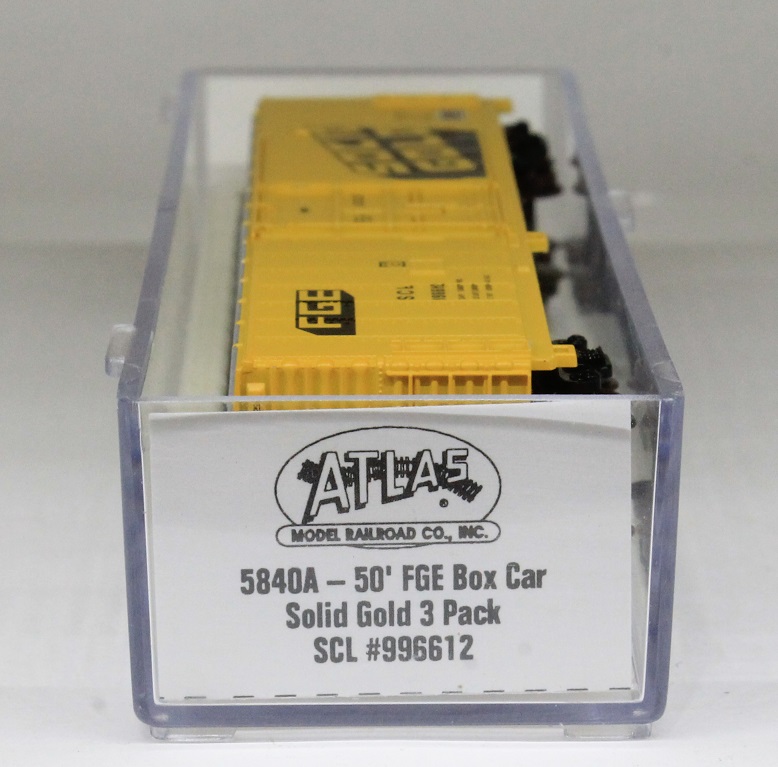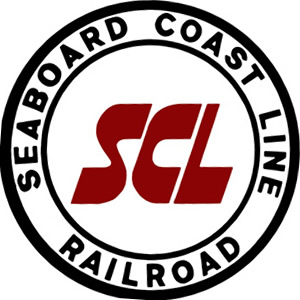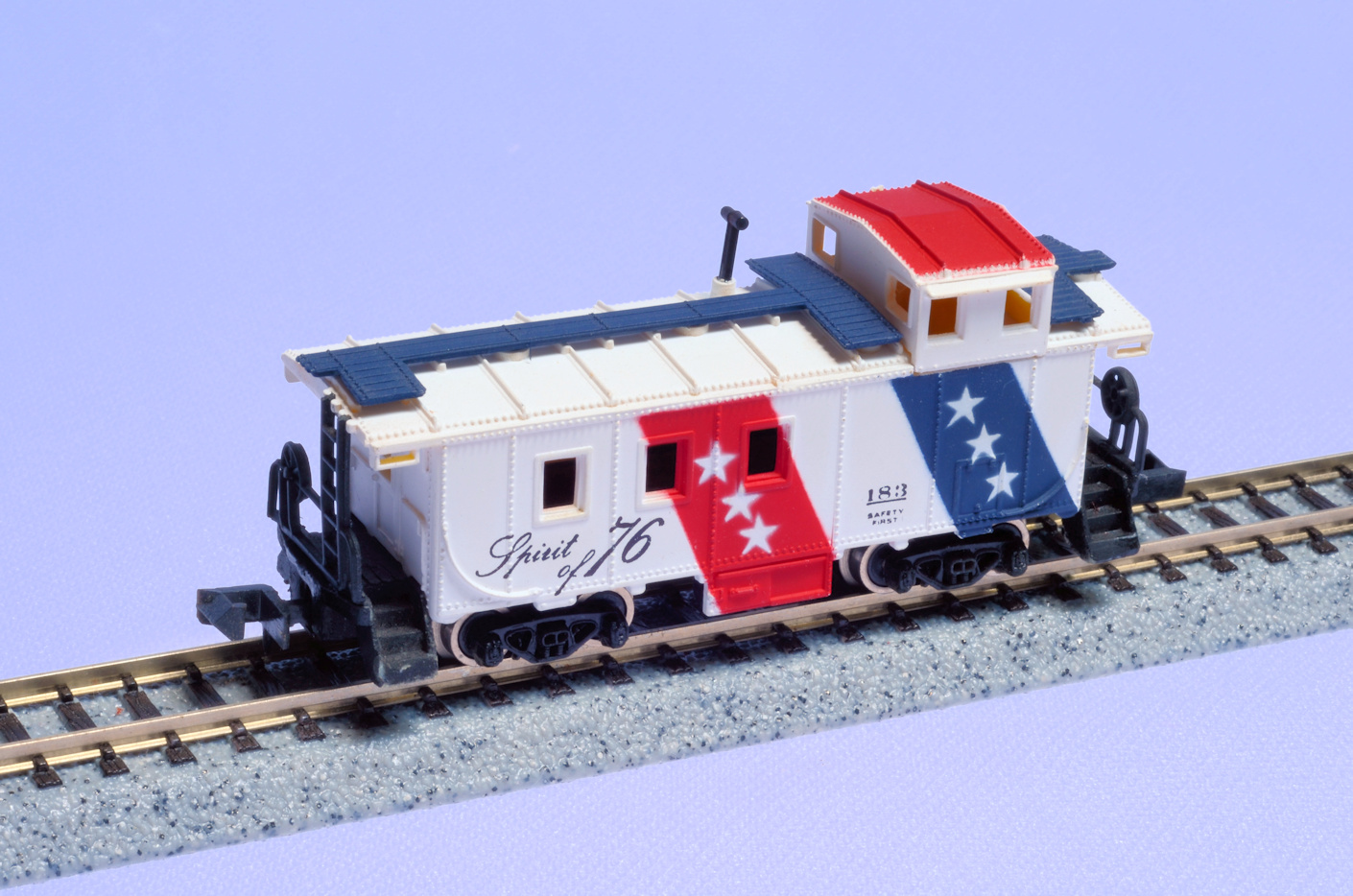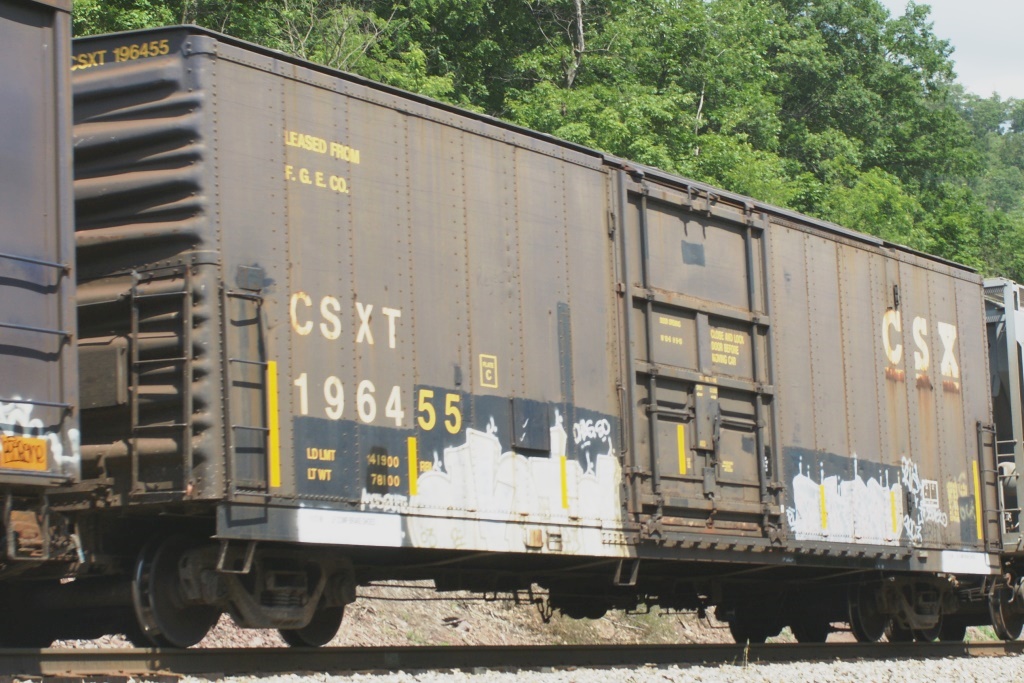Atlas - 5840-A - Boxcar, 50 Foot, Fruit Growers Express - Seaboard Coast Line - 996612
| Stock Number | 5840-A |
| Brand | Atlas |
| Manufacturer | Atlas |
| Body Style | Atlas Boxcar 50 Foot Fruit Growers |
| Prototype Vehicle | Boxcar, 50 Foot, Fruit Growers Express (Details) |
| Road or Company Name | Seaboard Coast Line (Details) |
| Reporting Marks | SCL |
| Road or Reporting Number | 996612 |
| Paint Color(s) | Yellow, Silver |
| Print Color(s) | White, Black |
| Additional Markings/Slogan | Solid Gold |
| Coupler Type | Rapido Hook |
| Coupler Mount | Truck-Mount |
| Wheel Type | Injection Molded Plastic |
| Wheel Profile | Small Flange (Low Profile) |
| Multipack ID Number | 5840 |
| Multipack Element | 1 |
| Item Category | Rolling Stock (Freight) |
| Model Type | Boxcar |
| Model Subtype | 50 Foot |
| Model Variety | Fruit Growers Express |
| Prototype Region | North America |
| Prototype Era | NA Era III: Transition (1939 - 1957) |
| Scale | 1/160 |
Specific Item Information:
1st car in 3 car pack #5840
Model Information:
Atlas first introduced this model in 1995. It has always been manufactured in China. The early releases came equipped with Rapido couplers. Later versions come with Accumate couplers.
This is quite definitely a "2nd Generation" tooling. It does feature low-profile wheels with magnetically operated couplers (Accumate). The print quality is excellent and the mold shows great attention to detail. However, it lacks the key three features of a 3rd gen model: metal wheels, body-mount couplers and detail parts. While the tooling is very high quality, the only noticeable detail part is the brake wheel - which is nothing special. The stirrups, while not being as clunky as early Atlas and Roco designs, lack the realistic appearance of a 3rd gen model where this part is typically not part of the mold. A nice model for its time (mid 1990s) but essentially a beginner's model at the time of this review (2017).
This is quite definitely a "2nd Generation" tooling. It does feature low-profile wheels with magnetically operated couplers (Accumate). The print quality is excellent and the mold shows great attention to detail. However, it lacks the key three features of a 3rd gen model: metal wheels, body-mount couplers and detail parts. While the tooling is very high quality, the only noticeable detail part is the brake wheel - which is nothing special. The stirrups, while not being as clunky as early Atlas and Roco designs, lack the realistic appearance of a 3rd gen model where this part is typically not part of the mold. A nice model for its time (mid 1990s) but essentially a beginner's model at the time of this review (2017).
Prototype History:
In addition to leasing and servicing its cars, FGE also built much of its own equipment. It should come as no surprise that the company’s main products were refrigerated cars; first ice-cooled cars and then mechanical reefers. Insulated boxcars became increasingly popular in the 1960s and 1970s.
FGE built the cars and then leased them to its parent railroads. Cars on long-term lease could be found in FGE paint schemes with the railroad’s reporting marks, or painted for the leasing road with minimal if any FGE information. Other cars roamed freely in open interchange service in FGE’s own fleet. Maintenance on these cars was also performed by FGE at their own shops.
Palletized shipments of perishables led to the introduction of this class in the early 1960s. The interior is fitted with restraints, which hold the loads securely and protect them against damage caused by slack action. To speed loading times, 10'6" plug doors are used, providing easier access for forklifts. These cars also carry electronic items, furniture, paper, machinery and other temperature-sensitive cargo.
Today, some FGE products still roam the rails. When it sold its own reefer fleet in the 1990s, cars were sold to Burlington Northern and Union Pacific. Modernized with new refrigeration units, many are still in service. While a few are still in service on local freights on Norfolk Southern and CSX, several more FGE-built cabooses of B&O, Conrail and L&N heritage can be found in parks and museums. What remains of FGE as a company is primarily paper – it is a wholly owned subsidiary of CSX.
FGE built the cars and then leased them to its parent railroads. Cars on long-term lease could be found in FGE paint schemes with the railroad’s reporting marks, or painted for the leasing road with minimal if any FGE information. Other cars roamed freely in open interchange service in FGE’s own fleet. Maintenance on these cars was also performed by FGE at their own shops.
Palletized shipments of perishables led to the introduction of this class in the early 1960s. The interior is fitted with restraints, which hold the loads securely and protect them against damage caused by slack action. To speed loading times, 10'6" plug doors are used, providing easier access for forklifts. These cars also carry electronic items, furniture, paper, machinery and other temperature-sensitive cargo.
Today, some FGE products still roam the rails. When it sold its own reefer fleet in the 1990s, cars were sold to Burlington Northern and Union Pacific. Modernized with new refrigeration units, many are still in service. While a few are still in service on local freights on Norfolk Southern and CSX, several more FGE-built cabooses of B&O, Conrail and L&N heritage can be found in parks and museums. What remains of FGE as a company is primarily paper – it is a wholly owned subsidiary of CSX.
Road Name History:
The Seaboard Coast Line Railroad (reporting mark SCL) is a former Class I railroad company operating in the Southeastern United States beginning in 1967. Its passenger operations were taken over by Amtrak in 1971. Eventually the railroad was merged with its affiliate lines to create the Seaboard System in 1983.
At the end of 1970 SCL operated 9230 miles of railroad, not including A&WP-Clinchfield-CN&L-GM-Georgia-L&N-Carrollton; that year it reported 31293 million ton-miles of revenue freight and 512 million passenger-miles.
The Seaboard Coast Line emerged on July 1, 1967, following the merger of the Seaboard Air Line Railroad with the Atlantic Coast Line Railroad. The combined system totaled 9,809 miles (15,786 km), the eighth largest in the United States at the time. The railroad had $1.2 billion in assets and revenue with a 54% market share of rail service in the Southeast, facing competition primarily from the Southern.
On November 1, 1980, CSX Corporation was created as a holding company for the Family Lines and Chessie System Railroad. In 1983 CSX combined the Family Lines System units as the Seaboard System Railroad and later became CSX Transportation when the former Chessie units merged with the Seaboard in December 1986. Effective January 1, 1983, the Seaboard Coast Line Railroad became Seaboard System Railroad after a merger with the Louisville and Nashville Railroad and Clinchfield Railroad. For some years prior to this, the SCL and L&N had been under the common ownership of a holding company, Seaboard Coast Line Industries (SCLI), the company's railroad subsidiaries being collectively known as the Family Lines System which consisted of the L&N, SCL, Clinchfield and West Point Routes. During this time, the railroads adopted the same paint schemes but continued to operate as separate railroads.
Read more on Wikipedia.
At the end of 1970 SCL operated 9230 miles of railroad, not including A&WP-Clinchfield-CN&L-GM-Georgia-L&N-Carrollton; that year it reported 31293 million ton-miles of revenue freight and 512 million passenger-miles.
The Seaboard Coast Line emerged on July 1, 1967, following the merger of the Seaboard Air Line Railroad with the Atlantic Coast Line Railroad. The combined system totaled 9,809 miles (15,786 km), the eighth largest in the United States at the time. The railroad had $1.2 billion in assets and revenue with a 54% market share of rail service in the Southeast, facing competition primarily from the Southern.
On November 1, 1980, CSX Corporation was created as a holding company for the Family Lines and Chessie System Railroad. In 1983 CSX combined the Family Lines System units as the Seaboard System Railroad and later became CSX Transportation when the former Chessie units merged with the Seaboard in December 1986. Effective January 1, 1983, the Seaboard Coast Line Railroad became Seaboard System Railroad after a merger with the Louisville and Nashville Railroad and Clinchfield Railroad. For some years prior to this, the SCL and L&N had been under the common ownership of a holding company, Seaboard Coast Line Industries (SCLI), the company's railroad subsidiaries being collectively known as the Family Lines System which consisted of the L&N, SCL, Clinchfield and West Point Routes. During this time, the railroads adopted the same paint schemes but continued to operate as separate railroads.
Read more on Wikipedia.
Brand/Importer Information:
In 1924 Stephan Schaffan, Sr. founded the Atlas Tool Company in Newark, New Jersey. In 1933 his son, Stephan Schaffan, Jr., came to work for his father at the age of sixteen. Steve Jr. built model airplanes as a hobby and frequented a local hobby shop. Being an enterprising young man, he would often ask the owner if there was anything he could do to earn some extra spending money. Tired of listening to his requests, the hobby-store owner threw some model railroad track parts his way and said, "Here, see if you can improve on this".
In those days, railroad modelers had to assemble and build everything from scratch. Steve Jr. created a "switch kit" which sold so well, that the entire family worked on them in the basement at night, while doing business as usual in the machine shop during the day.
Subsequently, Steve Jr. engineered the stapling of rail to fiber track, along with inventing the first practical rail joiner and pre-assembled turnouts and flexible track. All of these products, and more, helped to popularize model railroading and assisted in the creation of a mass-market hobby. The budding entrepreneur quickly outgrew the limitations of a basement and small garage operation. Realizing they could actually make a living selling track and related products, Steve and his father had the first factory built in Hillside, New Jersey at 413 Florence Avenue in 1947. On September 30, 1949, the Atlas Tool Company was officially incorporated as a New Jersey company.
In 1985, Steve was honored posthumously for his inventions by the Model Railroad Industry Association and was inducted into the Model Railroad Industry Hall of Fame in Baltimore, Maryland. In addition, Steve was nominated and entered into the National Model Railroad Association Pioneers of Model Railroading in 1995.
In the early 1990s, the Atlas Tool Company changed its name to Atlas Model Railroad Company, Inc.
In those days, railroad modelers had to assemble and build everything from scratch. Steve Jr. created a "switch kit" which sold so well, that the entire family worked on them in the basement at night, while doing business as usual in the machine shop during the day.
Subsequently, Steve Jr. engineered the stapling of rail to fiber track, along with inventing the first practical rail joiner and pre-assembled turnouts and flexible track. All of these products, and more, helped to popularize model railroading and assisted in the creation of a mass-market hobby. The budding entrepreneur quickly outgrew the limitations of a basement and small garage operation. Realizing they could actually make a living selling track and related products, Steve and his father had the first factory built in Hillside, New Jersey at 413 Florence Avenue in 1947. On September 30, 1949, the Atlas Tool Company was officially incorporated as a New Jersey company.
In 1985, Steve was honored posthumously for his inventions by the Model Railroad Industry Association and was inducted into the Model Railroad Industry Hall of Fame in Baltimore, Maryland. In addition, Steve was nominated and entered into the National Model Railroad Association Pioneers of Model Railroading in 1995.
In the early 1990s, the Atlas Tool Company changed its name to Atlas Model Railroad Company, Inc.
Item created by: maurice.grimes06
on 2020-06-04 22:10:03
Last edited by: baggedbird on 2023-06-23 20:23:25
If you see errors or missing data in this entry, please feel free to log in and edit it. Anyone with a Gmail account can log in instantly.
Last edited by: baggedbird on 2023-06-23 20:23:25
If you see errors or missing data in this entry, please feel free to log in and edit it. Anyone with a Gmail account can log in instantly.


